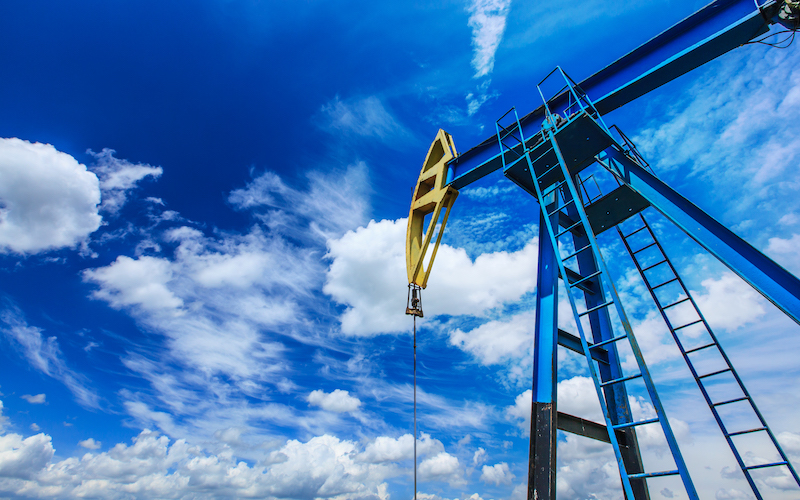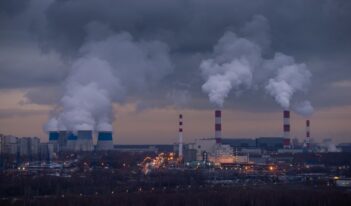
Natural gas continues to play a vital role in reducing U.S. greenhouse gas emissions.
The relationship between natural gas and climate change has fostered much confusion in the public and the media. Although natural gas is a fossil fuel, it has actually played a pivotal role in reducing the United States’ emissions of climate-changing carbon dioxide. Indeed, natural gas will remain a vital component of the nation’s and the world’s energy strategy for some time, at least until the challenges of using renewable sources can be solved so that wind and solar can provide a stable source of electricity.
Over the past eight years the United States has reduced its emissions of greenhouse gases by more than any other country. U.S. emissions of carbon dioxide are now at their lowest level since 1992. We have accomplished that feat by switching from high carbon content coal to low carbon content gas and carbon-free solar and wind as our primary sources of electricity. About 40 percent of the total reduction is attributable to switching from coal to solar and wind, while the other 60 percent is attributable to switching from coal to gas.
As the source of more than 25 percent of our electricity supply continues to be generated through the use of coal, we can continue to make some reductions in emissions by substituting gas for coal. Most of the future reductions, however, can only be accomplished by substituting wind and solar for both high-carbon coal and low-carbon gas.
Electricity suppliers can add more solar and wind to their mix of sources quickly and inexpensively until they reach the point at which a majority of the electricity they produce comes from wind and solar. Progress beyond that point will be difficult and slow.
The impediment to complete reliance on carbon-free sources is the intermittent nature of wind and solar. We can maintain reliable electricity service only by combining carbon-free sources with either storage or a reliable backup source. Yet the means of storing large quantities of electricity at a tolerable cost do not yet exist. There is every reason to believe that innovators in the energy industry will be able to identify and implement a method of storing electricity at tolerable cost in the future, but that may take decades to accomplish. In the meantime, the United States must rely on gas as a low-carbon backup source that will allow us to have access to electricity when the quantity of electricity produced from wind and solar is insufficient to meet demand.
As a scholar who has been studying the relationship between natural gas and climate change for decades, I recently submitted an amicus brief to the Supreme Court to help the justices understand the environmental implications of the decisions they make. The case in which I submitted my brief involved a legal question about the siting of a natural gas pipeline that would cut across the Appalachian Trail. Although I take no position on the actual merits of the siting question in that case, I do believe it is important for judges to understand the environmental ramifications of their decisions—and, in particular, the importance of natural gas as part of a larger battle against climate change.
Efforts to reduce emissions of greenhouse gases in the United States will not by themselves bring us to the level of global reductions required to mitigate climate change for some time to come. Although the United States, Europe, and Japan have reduced emissions significantly, emissions from Asian countries such as China and India have continued to increase as those countries continue to rely primarily on coal to provide much-needed electricity to their citizens.
The United States can play an important role in encouraging other nations to reduce their emissions by taking three actions. First, we must rejoin the Paris Climate Accord. Second, we must provide a good example to other nations by taking aggressive actions to reduce U.S. emissions. Third, we must provide Asian countries access to an inexpensive lower carbon alternative to coal as a reliable source of electricity. That is why it is critically important for the United States to maximize the quantity of gas that it produces and makes available for export.
We must couple our production of gas for use as a backup source of electricity in the United States and for export with aggressive efforts to reduce emissions of methane. Since methane is a powerful greenhouse gas, leaks of methane from gas wells, pipelines, and distribution lines can have severe adverse effects on climate change. Fortunately, the methane-detecting satellite that was recently launched by the Environmental Defense Fund (EDF) will greatly assist us in reducing methane emissions. Exxon is already using the data made available by the satellite to reduce its emissions on a voluntary basis. Once we have a presidential administration in place that is willing to regulate methane emissions, the data provided by the EDF satellite will be a powerful aid to effective regulation of methane emissions by the federal government.
Thus, natural gas can play important roles in mitigating climate change if but only if the government makes decisions that are based on an accurate understanding of the relationship between natural gas and climate change. This highlights the importance of the choice of the person who will reside in the White House after the November election.
I find the task of educating judges and Justices about the realistic effects of many legal decisions on climate change frustrating and lonely. The Supreme Court received twenty-nine briefs in the recent case involving the power of the government to authorize the construction of a gas pipeline under the Appalachian Trail. My amicus brief was the only brief that discussed the effects of the Court’s decision on climate change.
Conservatives, including the Solicitor General, will not discuss the effects of the Court’s decisions on climate change because such a discussion would implicitly concede the existence of anthropogenic climate change. The environmental activists who challenge virtually all government actions that would enable the United States to continue to produce, transport, and export natural gas are incapable of helping courts understand the relationship between natural gas and climate change because they mistakenly believe that stopping all production, transportation, and export of natural gas is good for the environment.




